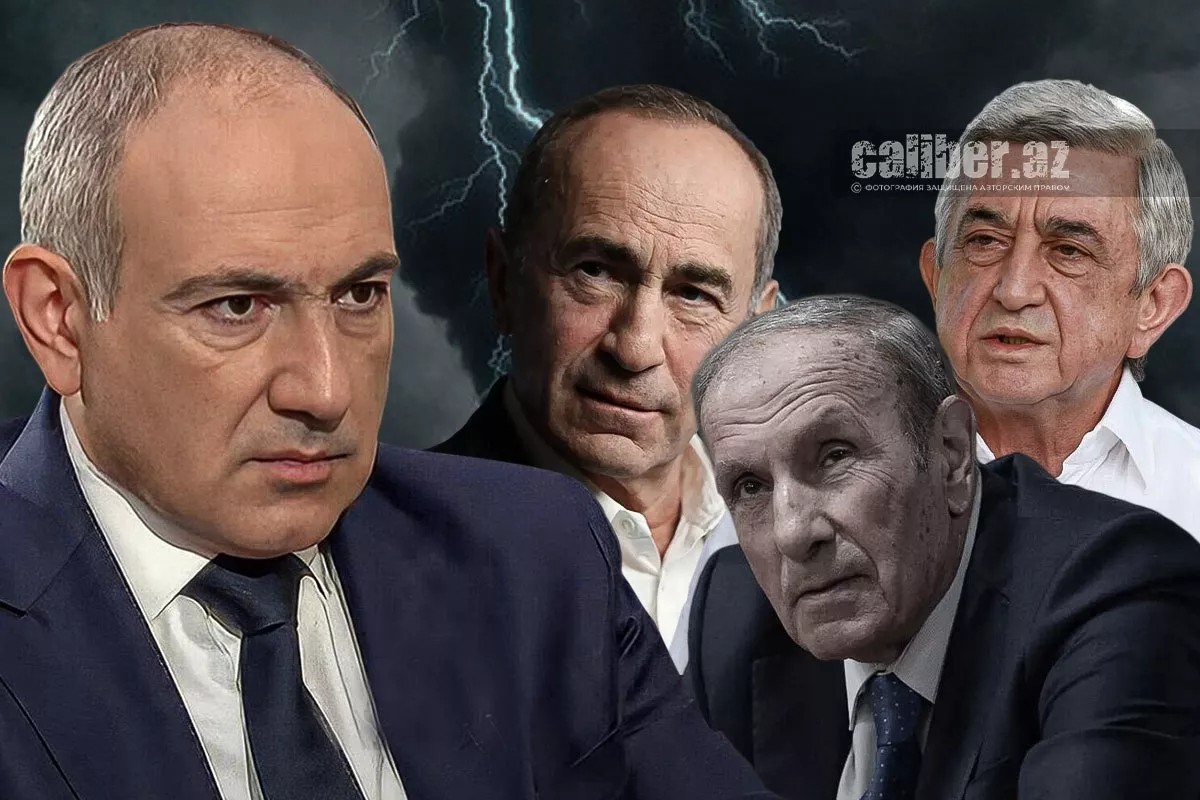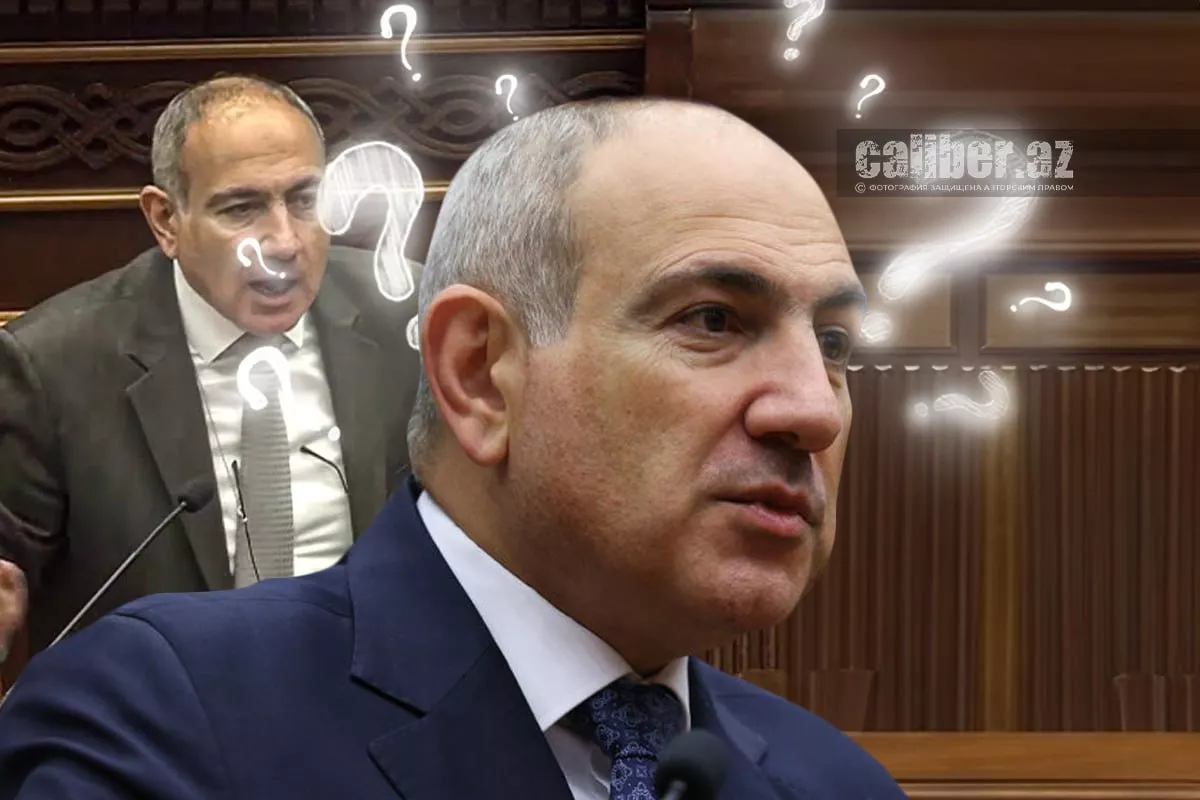Running in circles with obstacles Pashinyan and the deficit of will
During the government Q&A session in the National Assembly of Armenia, Prime Minister Nikol Pashinyan made new statements, in one way or another, related to the Armenia-Azerbaijan settlement.
"As the Prime Minister of the Republic of Armenia, I have made the decision that the 'Karabakh movement' should not continue. If the people of the Republic of Armenia oppose my decision, then I will not be the Prime Minister of the Republic of Armenia. As long as I remain Prime Minister, this is the official position of the Republic of Armenia," Pashinyan emphasised. He also added that "the Karabakh movement was used to hinder the establishment of Armenian statehood."
But that was not all. The Armenian prime minister launched a scathing attack on Armenia’s former leaders—Levon Ter-Petrosyan, Robert Kocharyan, and Serzh Sargsyan—who, since 2020, have been trying to pin the blame on him for the capitulation in the Second Karabakh War. According to Pashinyan, the defeat was already inevitable by the time he took office in 2018.
For this reason, the prime minister once again invited the former presidents to a live debate, which they have, however, refused. In his words, if they have something to say, they should do so on air rather than using intermediaries.
At the same time, Pashinyan made perhaps one of his most aggressive statements since taking office. Judge for yourself:
"But these three 'giants of thought' say they have nothing to debate with me about. Yet, they send their children, grandchildren, in-laws, and daughters-in-law to press conferences. Hey, if you have nothing to discuss, sit still and don’t stir... I will not debate with you; I will smash you against the wall. And from there, the remains of your political corpses will be carried out. This applies to all three of you. Stop playing with our nerves. I will crush you, not debate with you."

Well, it must be noted that this old trio is indeed incapable of anything beyond spiteful outbursts from the sidelines. In the event of direct debates with the incumbent prime minister, the advantage is clearly in Pashinyan’s hands. And these advantages are not just psychological but also material—far too much tangible evidence has been gathered, from corruption schemes linked to Karabakh to the former leaders' decades-long stubbornness in negotiations with Baku, as well as their political shortsightedness, which prevented them from recognising the reality that Azerbaijan was growing stronger and would sooner or later reclaim what was rightfully its own.
In this regard, the old clique is no match for Pashinyan. However, this does not mean that the Armenian prime minister faces no other obstacles on the path to a peaceful resolution of the Armenia-Azerbaijan conflict. As we have repeatedly noted, Pashinyan has chosen a strategy of balancing between two necessities—normalising relations with Azerbaijan while keeping the revanchist segment of his electorate on his side.
At the same time, it is important to note that Pashinyan does not put forward a substantive agenda for the revanchists—he does not advocate for the return of Armenians to Karabakh, for instance. Instead, he takes a passive approach in the negotiation process, seeking to stall the implementation of Baku’s legitimate demands wherever possible. However, considering that around two weeks ago, Yerevan accepted Azerbaijan’s terms on the remaining two points of the peace agreement, it can be concluded that progress, albeit slow, is still being made in this direction.

That said, while discussing the rejection of deploying third-country armed forces along the provisional border, Pashinyan added that he is willing to end the EU mission’s mandate in Armenia only after the peace treaty is signed. In doing so, he is effectively shielding himself from the revanchists’ outrage. After all, the settlement process does not depend solely on him—it also requires ratification by the Armenian parliament (where Pashinyan holds an absolute majority) and approval from the Constitutional Court to confirm its compliance with Armenia’s fundamental law. Should either of these institutions reject the agreement, Pashinyan can simply shrug and claim he did everything he could. Conversely, if he withdraws the EU mission before the treaty is signed, he risks losing the support of both the revanchist and pro-European segments of his electorate.
The situation is further inflamed by Armenia’s foreign patrons, as demonstrated by the Swiss Parliament’s adoption of a bill supporting the "people of Nagorno-Karabakh" and Belgian lawmakers' announcement that they will discuss a similar initiative in April. Europeans have leverage over Pashinyan not only by shaping Armenian public opinion but also directly through the countless grants allocated to his government. It stands to reason that if Armenia pursued a more independent policy, these financial inflows would likely dwindle.
On the other hand, Pashinyan understands that reconciliation with Azerbaijan and Türkiye promises far greater and more stable benefits for Armenia—and for his government—than the handouts from Europe’s high table. Whether the bigger obstacles he faces are domestic or external is ultimately secondary. What matters most is whether he has the will to take the decisive step. And that is the real question.








